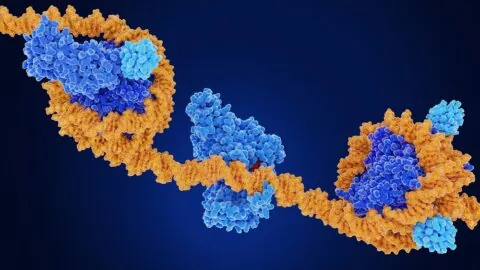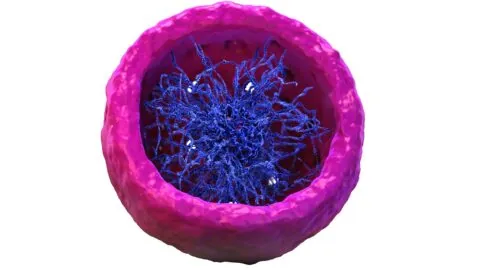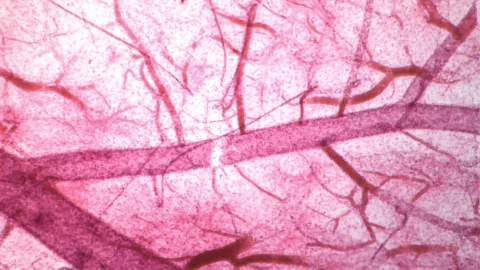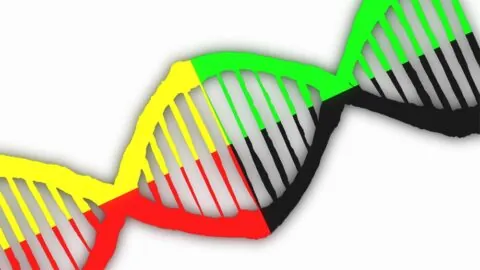January 29, 2024
Steve Horvath, Vera Gorbunova, Alejandro Ocampo, and their team have used partial reprogramming to repair DNA damage in a mouse model. They published their findings in Frontiers in Aging. Building a path to rejuvenation Yamanaka Factors - Opportunities for RejuvenationDrs. Takahashi and Yamanaka showed that they could use Oct4, Sox2, Klf4, and c-Myc (OSKM) to reprogram...
December 11, 2023
In a paper published on Saturday in Aging, researchers have described a method of activating the sirtuin SIRT6 to reduce DNA damage, reducing senescence and possibly treating arthritis. Sirtuins, genetic damage, and senescence Extensive previous research has found that SIRT6, a deacetylase that is dependent on NAD+, is instrumental in DNA repair [1] and naturally...
November 23, 2023
Publishing in Ageing Research Reviews, a team of researchers including Vera Gorbunova has described how a class of drugs originally used to treat HIV might be used to affect some of the hallmarks of aging. Inhibiting DNA changes DNA transcription, which transfers DNA code into the RNA that cells use to make proteins, can also...
November 19, 2023
Researchers publishing in Nature Aging have investigated one of the core biological reasons behind the decline of stem cells' ability to proliferate. Heterochromatin and euchromatin The genetic component of cells is comprised of two main parts: heterochromatin and euchromatin. Heterochromatin is largely silent, as it is a tightly packed mass that consists primarily of non-coding...
October 19, 2023
In a paper published in Aging, researchers have explored the relationship between DNA damage and aging of the blood vessels. How arteries age This paper begins with some well-known facts about aging and cardiovascular risk. Cardiovascular disease is the single most common cause of death in the world. Accompanying this increase in risk are an...
September 13, 2023
According to a newly published paper in Nature Communications, transposable elements impact aging in C.elegans [1]. Transposable elements and aging Transposable elements are often referred to as mobile genetic elements or jumping genes, as these DNA pieces can change their position in the genome. Changing the position of transposable elements can potentially lead to mutations...






